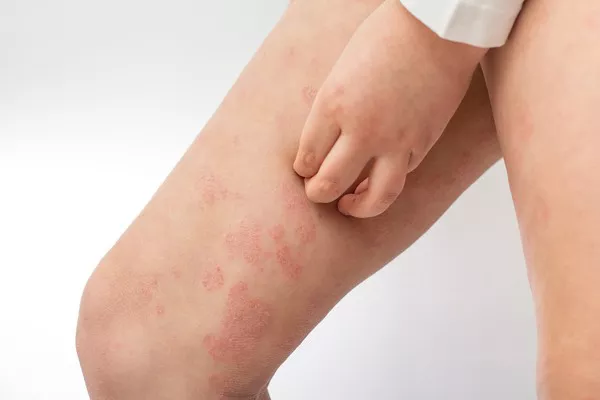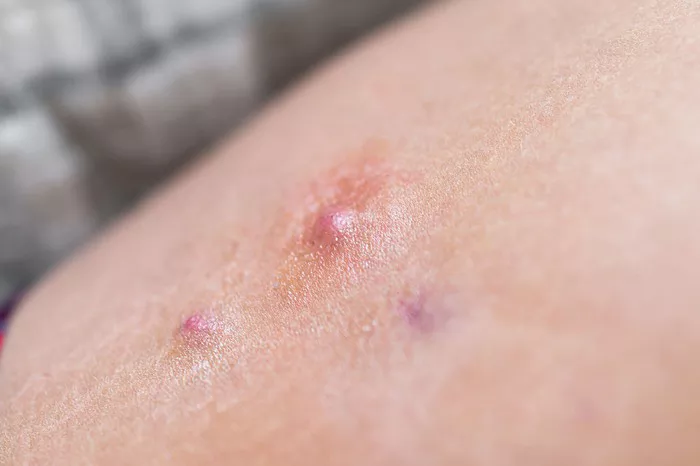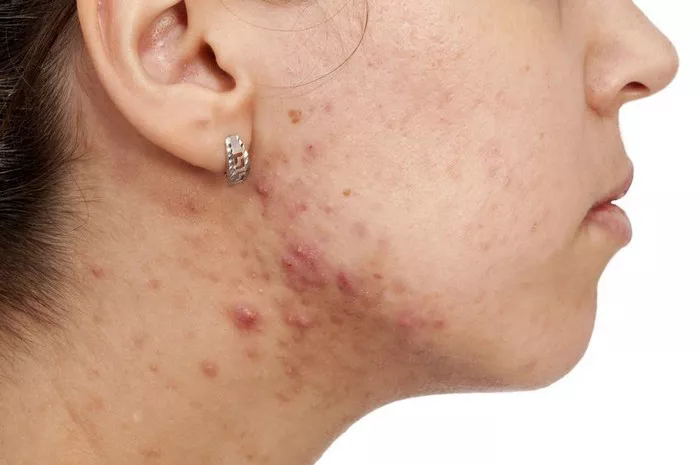Eczema, also known as atopic dermatitis, is a common skin condition that causes red, itchy, and inflamed skin. While many factors contribute to eczema, diet plays a significant role in its management. Understanding how certain foods affect eczema can help individuals make informed choices to reduce flare-ups. This article explores foods that may trigger eczema, those that can help soothe it, and practical dietary tips.
Understanding Eczema and Its Triggers
Eczema is a chronic condition that can be influenced by various factors. These include genetics, environmental irritants, and stress. One of the less discussed factors is diet. Some foods may trigger inflammation, leading to eczema flare-ups.
Common Symptoms of Eczema
Symptoms of eczema can vary from person to person but often include:
Itchy skin: The most common symptom.
Red or brownish-gray patches: Often seen on the hands, feet, ankles, wrists, neck, upper chest, eyelids, and in the creases of elbows and knees.
Thickened, cracked skin: This can occur after prolonged scratching.
Small, raised bumps: These may leak fluid when scratched.
How Food Affects Eczema
Food can impact eczema in several ways:
Inflammation: Certain foods can trigger inflammation, worsening eczema symptoms.
Immune response: Some foods may cause an allergic reaction, leading to eczema flare-ups.
Gut health: The gut microbiome plays a role in skin health. A healthy diet can support gut health, which may help manage eczema.
Foods That May Trigger Eczema
Certain foods are commonly linked to eczema flare-ups. Identifying and avoiding these foods can help manage symptoms.
Dairy Products
Dairy products, such as milk, cheese, and yogurt, are common allergens. They can trigger inflammation in some individuals, leading to eczema flare-ups. If you suspect dairy is an issue, consider eliminating it from your diet for a few weeks to see if symptoms improve.
Eggs
Eggs are another common allergen that can affect those with eczema. Some studies suggest that egg allergies may be more prevalent in children with atopic dermatitis. If you have eczema, it may be worth testing your tolerance to eggs.
Nuts
Nuts, particularly peanuts and tree nuts, are known allergens. Consuming them can cause allergic reactions in sensitive individuals, potentially worsening eczema. If you have a nut allergy, it’s essential to avoid these foods entirely.
Wheat and Gluten
Wheat contains gluten, which can trigger eczema symptoms in some people, especially those with gluten sensitivity or celiac disease. If you notice a correlation between wheat consumption and your eczema, consider trying a gluten-free diet.
Soy
Soy is a common allergen found in many processed foods. For individuals with soy allergies or sensitivities, consuming soy can lead to increased inflammation and eczema symptoms.
Fish and Shellfish
While fish is generally considered healthy, some individuals may have allergies to specific types. Shellfish allergies, in particular, are common and can provoke eczema flare-ups. If you suspect fish or shellfish is a trigger, consult with a healthcare provider.
Citrus Fruits
Citrus fruits, such as oranges, lemons, and grapefruits, can be irritating for some individuals with eczema. Their high acidity may exacerbate skin irritation. If you notice a reaction after consuming citrus, try eliminating it from your diet.
Processed Foods and Sugars
Highly processed foods and those high in sugar can promote inflammation in the body. This inflammation can worsen eczema symptoms. Limiting processed foods, refined sugars, and unhealthy fats is advisable for maintaining skin health.
Foods That May Help Improve Eczema
While some foods can worsen eczema, others may help soothe symptoms. Incorporating anti-inflammatory foods into your diet can support skin health.
Fatty Fish
Fatty fish, such as salmon, mackerel, and sardines, are rich in omega-3 fatty acids. Omega-3s have anti-inflammatory properties that can help reduce eczema symptoms. Aim to include fatty fish in your diet at least twice a week.
Leafy Greens
Leafy greens, like spinach, kale, and Swiss chard, are high in vitamins and antioxidants. These nutrients support overall skin health and may help reduce inflammation. Try to include a variety of leafy greens in your meals.
Avocados
Avocados are rich in healthy fats, particularly monounsaturated fats, which can help maintain skin hydration. They also contain antioxidants and vitamins E and C, which support skin health. Incorporating avocados into your diet can be beneficial.
Sweet Potatoes
Sweet potatoes are a great source of beta-carotene, which the body converts into vitamin A. This vitamin is essential for skin health. Sweet potatoes are also high in fiber, which supports gut health, potentially benefiting eczema.
Nuts and Seeds
While some nuts can trigger eczema, others, like flaxseeds and walnuts, are rich in omega-3 fatty acids. These healthy fats can help reduce inflammation. If you’re not allergic, incorporating these nuts and seeds into your diet can be beneficial.
Oats
Oats are gentle on the skin and may help soothe eczema symptoms. They contain beta-glucans, which can help reduce inflammation and improve skin barrier function. Consider adding oats to your breakfast or using oatmeal baths for relief.
Quinoa
Quinoa is a gluten-free grain rich in protein and essential amino acids. It can help support skin health and reduce inflammation. Quinoa is also high in fiber, promoting gut health, which can be beneficial for managing eczema.
Berries
Berries, such as blueberries, strawberries, and raspberries, are packed with antioxidants and vitamins. These nutrients can help reduce inflammation and support overall skin health. Include a variety of berries in your diet for added benefits.
Fermented Foods
Fermented foods, like yogurt, kefir, sauerkraut, and kimchi, contain probiotics that can support gut health. A healthy gut microbiome is linked to better skin health. Incorporating fermented foods can help improve your skin condition.
Practical Dietary Tips for Managing Eczema
Here are some practical tips for managing eczema through diet:
Keep a Food Diary
Keeping a food diary can help identify potential triggers. Write down everything you eat and note any eczema flare-ups. Over time, you may spot patterns that can guide your dietary choices.
Elimination Diet
An elimination diet involves removing common allergens from your diet for a few weeks, then reintroducing them one at a time. This process can help pinpoint specific food triggers. Consult with a healthcare provider before starting an elimination diet.
Stay Hydrated
Drinking plenty of water is essential for overall health and skin hydration. Aim for at least eight glasses of water a day. Staying hydrated can help maintain skin moisture, which is crucial for managing eczema.
Limit Processed Foods
Focus on whole, unprocessed foods. Limiting processed foods can help reduce inflammation and improve skin health. Choose fresh fruits, vegetables, whole grains, and lean proteins.
Incorporate Healthy Fats
Include healthy fats in your diet to support skin hydration. Foods like avocados, nuts, seeds, and fatty fish provide essential fatty acids that can help maintain skin barrier function.
Consult a Healthcare Provider
If you struggle with eczema, consider consulting a healthcare provider or a registered dietitian. They can provide personalized guidance and help develop a tailored dietary plan.
Conclusion
Diet plays a significant role in managing eczema. Understanding how specific foods affect your condition can empower you to make informed choices. While some foods may trigger flare-ups, others can help soothe your skin. By focusing on a balanced diet rich in anti-inflammatory foods, you can support your overall skin health and reduce the frequency and severity of eczema symptoms. Always consult with a healthcare provider before making significant dietary changes, especially if you have allergies or sensitivities.
Related topics:



























